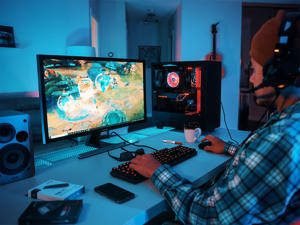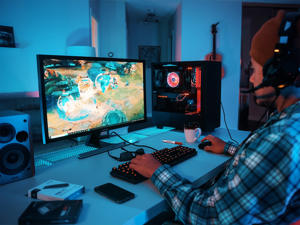The Albanese Government has announced the release of the Stevens Review and the proposal of new changes aimed at better protecting vulnerable individuals from the adverse effects of gambling. While the potential changes could alter the classification of previously G-rated (for everyone) games like FIFA and Pokemon, the review also focuses on the multi-billion dollar global “social casino” industry dominated by major gambling companies.
Research cited by the government shows that loot boxes and simulated gambling can lead to problem gambling, highlighting its goal to “protect those most vulnerable in our community from gambling harms and signal that such games are not appropriate for children.”
RELATED: Good God, There is a New ‘Texas Chain Saw Massacre’ Game On the Way.

© Provided by Man of Many Nba 2k23 pakcs
Packs like these in NBA 2K could be deemed illegal gambling | Image: NBA 2K
The Review will also bring current classification arrangements up to date with the vast amount of digital content available. Unfortunately, it may be more far-reaching than gamers may expect. Under the proposed changes, video games that contain simulated gambling will now have a mandatory minimum classification of R 18+. On the other hand, computer games containing paid loot boxes will be given an M rating.
Australia’s communications minister, Michelle Rowland, said games featuring less apparent forms of gambling or incorporating gambling to support a wider plot would have the same policy as games with more prominent gambling themes. “We want to be very clear and binary in this regard, and the certainty that a proposal that says if there is simulated gambling in a game, then it is subject to a particular rating provides,” Rowland told ABC.
The government also plans to expand options for self-classification to make things easier for the film, streaming video, and gaming industries. The hope is that self-classification will make it simpler and more cost-effective for these industries to classify their content in line with Australian guidelines, with the Classification Board supporting the consistency and accuracy of industry classification decisions.
While the idea still needs to pass the approval of state and territory governments, Australia is not the first government to hunt down loot boxes.

© Provided by Man of Many Gaming lootboxes in the spotlight with australian government 2
In 2018, the Belgium Government said some loot boxes could be classified as illegal gambling | Image: Unsplash
Way back in 2018, the Belgium government concluded that because of the element of chance and that players had to pay money to place bets for either a profit or loss, some loot boxes could be classified as illegal gambling.
Koen Geens, Belgium’s Minister of Justice, was keen to emphasise how children are confronted with loot boxes, labelling the combination of gaming and gambling “dangerous for mental health.”
Since many of these social casino games replicate the experience of a poker machine, even allowing players to purchase more virtual coins, they never pay out real money, meaning they’re not treated as gambling services and are regulated as video games.
Despite players never winning from their gambling, Aristocrat Leisure, one of the largest gaming machine manufacturers in the world, with machines operating in more than 100 countries, raked in $1.4 billion from social casino games alone, or about half of its digital revenue.
There’s just one problem. Addressing gambling in video games only doesn’t address the elephant in the room. Or as one scathing Redditor commented: “Good, the only time children should be exposed to gambling is during primetime tv, and major sporting events, and social media, and billboards, with major campaigns run by the biggest sports stars, and cultural icons.”
Regardless of your opinion on gambling, in whatever form, be it loot boxes or pokies, we’ll have to wait and see what becomes of the government’s review and whether it makes a difference for the very serious issue of problem gambling in Australia.
You can get immediate assistance by calling the National Gambling Helpline on 1800 858 858 for free, professional and confidential support 24 hours a day, 7 days a week.
You’ll also like:
Best New Games Coming in March 2023
New TMNT Video Game Promises to Go ‘God of War’ Mode
New LEGO Jurassic Park Sets Let You Recreate OG Scenes
